2024 Recipients
Faculty Excellence in Teaching
Dominic White
Instructional Assistant Professor, Computational Data Sciences
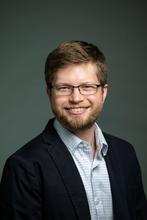
Dominic White received his PhD in 2016 from George Washington University and is an instructional assistant professor in the Department of Computational Data Sciences in the College of Science (COS). A computational paleontologist, White joined the faculty in 2019 and serves as the course coordinator for CDS 101 and 102, Introduction to Computational and Data Sciences, which is a Mason Core course in the Natural Sciences at Mason. As course coordinator, he leads and supports a team of fifteen faculty and Teaching Assistants (TAs) who teach the course.
White has led a number of successful pedagogical experiments that have changed his approach to the introductory course. In particular, he has taken advantage of the capabilities of online learning platforms to make the course more interactive, combining short lecture videos, quizzes, and scaffolded programming exercises to encourage student engagement. Students have responded well to his approach. They have given the course consistently excellent evaluations and have routinely recognized him through the Stearns Center’s “Thank-a-Teacher” program. The enrollments for the course have tripled in the four years White has been teaching it. He also developed an innovative new course, CDS 490, in which undergraduate students worked with the US Census Bureau on semester-long projects using census data, which they then presented at a Census Bureau conference.
Rachel A. Lewis
Instructional Associate Professor, Women and Gender Studies
Director of Undergraduate and Graduate Programs
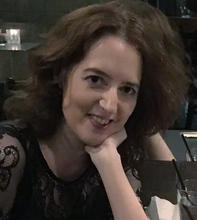
Rachel Lewis joined the Women and Gender Studies faculty in the College of Humanities and Social Sciences (CHSS) as an Instructional Assistant Professor in 2012. Lewis currently serves as the Director of both the Undergraduate Program and the Graduate Program. Lewis has taken an outsized role in curricular development for the Women and Gender Studies program, having designed and taught 17 different courses over the past ten years. Given the small number of program faculty members, her initiative in this regard has been crucial to the program’s ability to offer a wide array of courses to their students. Lewis’s courses are interdisciplinary and transnational in scope, focusing in particular on issues relating to sexuality, race, immigration, human and animal rights, ecology, and disability. Her student evaluations have been consistently stellar.
Beyond the classroom, Lewis is extraordinarily active as a mentor to both graduate and undergraduate students. At the graduate level, she has chaired 25 M.A. student committees in five different programs, and has served on the committees for nearly 30 more students at either the M.A. or doctoral level. Though her appointment is in Women and Gender Studies, Lewis plays a central role in graduate mentorship across many humanities and social science fields, particularly for students whose research relates to issues of gender and sexuality.
Moreover, Lewis has built an impressive record of scholarly activity while at Mason, and it is evident that her scholarship fuels her teaching and course development. Her administrative work and leadership are particularly impressive in light of her teaching and mentoring contributions.
John Toups Presidential Medal for Faculty Excellence in Teaching
Lisa M. Gring-Pemble
Associate Professor, Business Foundations
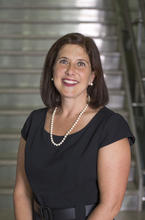
Lisa Gring-Pemble is an Associate Professor in the Costello College of Business (CCB). Her teaching fields include innovation and entrepreneurship, rhetoric, political communication, and public policy. Two things stand out about Gring-Pemble’s teaching. The first is her ability to engage students intellectually by building relationships with them. Every semester she meets with each of her students individually, builds various in-term assessments and check-ins into her courses so that she can monitor their engagement and adapt her instruction accordingly, and takes pains to come alongside each student and guide them towards their goals. The second is her persistent effort to find new learning opportunities for her students, usually in the form of impactful experiential learning. Over the years she has taken her students to New Hampshire to meet presidential candidates and observe the electoral process in person; organized study abroad trips; and brought students with her to sit in on congressional debates and Supreme Court hearings.
Gring-Pemble’s innovative contributions often serve Mason’s goals of sustainability and inclusive excellence. She was co-founder of Mason’s Honey Bee Initiative, Founding Co-Executive Director of the Business for a Better World Center, is a board member of the Institute for a Sustainable Earth, and serves on the advisory board of UndocuMason. In 2011, she won a $1.4 million State Department grant to develop and lead five-week academic residencies for Afro-Latino and Indigenous student leaders from Colombia, Ecuador and Venezuela. In 2020, Gring-Pemble co-developed the Impact Fellows program, a two-year cohort-based program for first-time first-year students from groups under-represented in the business world.
Gring-Pemble is a decorated teacher and mentor, having already received Mason’s University Teaching Excellence Award (2005), the OSCAR Mentoring Excellence award (2017), the Mason Alumni Association Faculty Member of the Year award (2019), the School of Business Student Research Mentoring Award (2022), the Prime North America (North America Region) Excellence in Teaching Award (2022), and the Eastern Communication Association Distinguished Teaching Fellow Award (2023).
Faculty Excellence in Research
Antonios Anastasopoulos
Assistant Professor, Computer Science
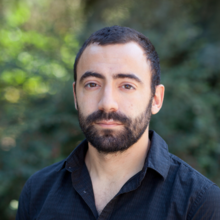
Antonios Anastopoulos, an assistant professor in the Department of Computer Science in the College of Engineering and Computing (CEC), received his PhD in 2019 from the University of Notre Dame. Anastopoulos’ research is in the field of natural language processing (NLP), which seeks to enable computers to understand text and spoken words. His research has pursued two main objectives. First, he has led projects that aim to make language technologies work for populations that are under-served by currently available tools—for example, by enabling computers to handle input from non-native language speakers or non-standard dialects. He has also led interdisciplinary projects with humanists that seek to document endangered languages. He has, for example, developed tools that can perform optical character recognition (OCR) on endangered languages so that currently inaccessible texts will be made available for scholarly analysis.
Since joining Mason in 2020, he has published over 32 refereed papers and his publications have been cited over 2700 times. Anastopoulos has received $3.6 million in external funding in his first three years at Mason. The interdisciplinary nature of his research is reflected in the diverse range of grants he has received, from the National Science Foundation (NSF), to the National Endowment for the Humanities, Google, Amazon, Meta (Facebook), the Virginia Research Investment Fund, and the Commonwealth Cyber Initiative.
Rémi Veneziano
Assistant Professor, Bioengineering
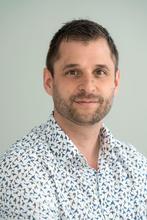
Remi Veneziano received his PhD in Health Biology in 2013 from the University of Montpellier in France, and after five years in a postdoctoral fellowship at the Massachusetts Institute for Technology (MIT), he joined the Bioengineering Department in the College of Engineering and Computing (CEC) in 2018. Much of his research up to this point has been in DNA origami, which involves the folding of DNA to create 2D and 3D objects at nanoscale, thus enabling the construction of functional nanomaterials. While this research is significant in its own right, Veneziano has also led the effort to apply it to the creation of new technologies. In recognition of his innovative approaches, he was a recent recipient of a National Institutes of Health (NIH) Trailblazer Award.
Veneziano already has ten patents or patent applications, including one that has been licensed, and he received seed funding from the National Science Foundation (NSF) and the Virginia Innovation Partnership Corporation to start a new venture to commercialize technologies developed from his research. He has published his research widely, with 32 refereed publications, including one in the prestigious journal Science. His research has been supported by eight grants, from agencies such as NSF, the National Institutes of Health (NIH), and the Department of Defense (DOD), for a total of $2.7 million. Veneziano is also ensuring that the next generation of researchers is receiving world-class training in the exciting new field of DNA-origami through his mentoring of undergraduates, graduate students, and postdoctoral fellows.
Lincoln A. Mullen
Associate Professor, History and Art History
Executive Director, Roy Rosenzweig Center for History and New Media
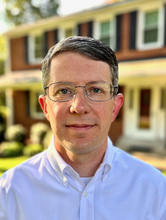
Lincoln Mullen joined the Mason faculty in 2014 and is currently an associate professor in the Department of History and Art History in the College of Humanities and Social Sciences (CHSS). As a historian of American religion and the nineteenth-century United States, his first book, The Chance of Salvation: A History of Conversion in America, published by Harvard University Press in 2017, won a “Best Book” prize from the American Academy of Religion. His second major project in this field was America’s Public Bible, published by Stanford University Press in 2023, an interactive scholarly work that uncovers the history of the Bible in the nineteenth- and early twentieth-century United States using computational methods. He has published scholarly articles on American religious history in top journals in the disciplines of history and religious studies, and he has also written about American religion in prominent mainstream publications such as Atlantic Monthly and The Washington Post.
Mullen is also a national leader in the field of digital history and the Executive Director of the Roy Rosenzweig Center for History and New Media, the oldest and largest digital humanities center in the country. In this field he has directed nine major collaborative digital projects and created several new software tools to examine or visualize historical datasets. One example is Mapping Early American Elections, which turned electoral returns from the first several decades of U.S. history into a dataset that could be analyzed and mapped using data visualization tools. Mullen’s digital projects have received nearly $3 million in grant funding from agencies such as the National Endowment for the Humanities, the Mellon Foundation, and the Library of Congress. This volume of grant funding in the humanities is extraordinarily rare.
In addition to his scholarly work, Mullen has played a central role in developing the department’s graduate curriculum in digital history and served as an advisor to dozens of doctoral and M.A. students.
The Beck Family Presidential Medal for Faculty Excellence in Research
Rainald Löhner
Professor, Physics and Astronomy
Director, Center for Computational Fluid Dynamics
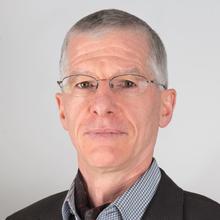
Rainald Löhner is a professor in the Department of Physics and Astronomy in the College of Science (COS) and is the Director of the Center for Computational Fluid Dynamics (CFD). His research is in fluid dynamics, and he has been a pioneer in developing computational models for solving fluid flow problems. His algorithms and techniques have been applied to solve a wide variety of urgent problems, including air and underwater explosions, ship and submarine hydrodynamics, hemodynamics of vascular diseases, contaminant and pathogen transport, and even pedestrian movement and crowd control. Löhner’s recent efforts to apply his work in computational fluid dynamics to the problem of Covid-19 transport received national attention from major media outlets.
Löhner has been a prolific researcher and has published nearly 900 research publications, including nearly 200 peer-reviewed articles in journals from a variety of disciplines, ranging from the Journal of Computational Physics and the International Journal for Numerical Methods in Fluids to Engineering with Computers and the Institute of Electrical and Electronic Engineers (IEEE) Transactions on Medical Imaging. He is also the author of a textbook on Applied Computational Fluid Dynamics. Löhner has given over 150 invited talks, many of them abroad, and serves on the editorial board of six international journals. He has secured grants in excess of $20 million dollars from several major organizations, including NASA, NSF, the National Institute of Health (NIH), NSF, the Defense Threat Reduction Agency (DTRA), the Office of Naval Research (ONR), and the Air Force Office of Scientific Research (AFSOR).
In recognition of his research achievements, Löhner has received prestigious awards and has been named a Fellow of the International Association of Computational Mechanics. In 2023, he was recognized by Stanford University as one of the world's top 2% of scientists. Löhner has been active as a mentor, both to graduate students and colleagues. Many of his former graduate students have gone on to have successful academic careers, including several at Mason.
Faculty Excellence in Diversity and Inclusion
Gabrielle Tayac
Associate Professor of Public History, History, and Art History
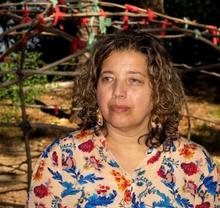
Gabrielle Tayac is a public historian who joined the faculty at Mason’s Department of History and Art History in the College of Humanities and Social Sciences (CHSS) in 2020. Prior to arriving at Mason, she had an impactful career as an educator, historian, and curator at the Smithsonian National Museum of the American Indian (NMAI), where she became a leading figure in the development of “community curation,” a new, inclusive methodology for studying and representing the history of underrepresented groups. This methodology combines archival research with oral history and other forms of community engagement that make possible a “co-construction” of knowledge about the community in question. At Mason she has continued to employ this methodology. Among her recent projects are NMAI’s reinstallation of its permanent exhibit, for which she is a consulting curator, and her efforts to partner with the Nanticoke-Lenape Tribe in New Jersey to help them develop their own museum.
Tayac has also brought this community curation methodology to her teaching and mentoring at Mason. She has created six new courses that teach community-engaged, public-history methods to undergraduate and graduate students. In each course she builds in experiential learning opportunities in which her students interact with knowledge holders from the marginalized communities whose history they are studying. As one example of her impactful work, with funding from the Virginia Humanities Foundation, she led doctoral students in an oral history project with Barrios Unidos, a grassroots anti-violence organization in Northern Virginia that developed Indigenous cultural practices as a healing modality for gang-involved youth.
Kelly L. Knight
Instructional Associate Professor, Forensic Science
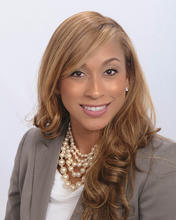
Kelly Knight joined the Department of Forensic Science in 2013 as an instructional associate professor in the College of Science (COS). Prior to Mason, she worked professionally as a forensic scientist—first as a research associate and laboratory manager, and then as a forensic DNA analyst for several years with the Maryland State Police’s Forensic Sciences Division. Knight received the University’s Teaching Excellence Award in 2020 and she is the principal investigator of the forensic DNA laboratory.
Throughout Knight’s time at Mason she has played key roles in a number of initiatives to advance the cause of diversity and inclusivity in STEM education. In 2019 she led the effort to create the first forensic DNA laboratory on campus, in part based on the goal of providing the kind of hands-on learning that often helps to erase gender and ethnic gaps in STEM degree achievement. In 2021 she participated in a National Science Foundation (NSF) funded 8-week course called "The Inclusive STEM Teaching Project." Following that experience she and two other Mason faculty members completed the facilitator workshop training necessary to lead a group of Mason STEM faculty through the same course. Knight has served on numerous DEI-related committees on and off campus and serves at the faculty advisor for several student groups, including the Women of Color in STEM (WOCSTEM).
Knight has also provided significant leadership in outreach efforts. Over a decade ago Professor Knight co-founded the Females of Color and those Underrepresented in STEM (FOCUS) middle school camp and the FOCUS High School Academy. Based on these and other achievements, Knight became a Fellow of the American Academy of Forensic Sciences in 2020 and was selected to give the keynote speech at the American Academy of Forensic Science (AAFS) Diversity Forum annual conference.
United Bank Presidential Medal for Faculty Excellence in Diversity and Inclusion
Xiaomei Cai
Associate Chair and Associate Professor, Communications
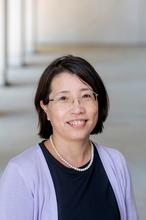
Xiaomei Cai is associate chair and associate professor in the Department of Communications in the College of Humanities and Social Sciences (CHSS). She joined George Mason in 2006 and her research and scholarship focuses on the well-being of vulnerable populations, especially with respect to children’s privacy on the Internet and health prevention among adolescents. She has had a history of service on equity-focused committees and supporting student success through inclusive pedagogy and curriculum. In fact, her mentorship was recognized with a 2015 OSCAR Mentoring Excellence Award.
Cai’s leadership for inclusive excellence causes was motivated, in part, by the surge of anti-Asian discrimination during the Covid-19 pandemic. Cai played a lead role in developing the CHSS Network, which is a faculty mentoring program that reaches all faculty but was created in part to ensure that underrepresented faculty members receive adequate guidance and support. She has also been instrumental in the development of the college’s inclusive faculty search protocol, which resulted in a significant increase in the number of minoritized faculty, as well as in the number of faculty whose scholarly expertise and research reflects broader, more diverse interests. Finally, she has assumed oversight over the implementation of CHSS’s Inclusive Excellence Plan. Within the Department of Communication, she has aligned the departmental goals with college-wide inclusive excellence efforts and has actively promoted faculty involvement in mentoring in order to achieve a stronger academic environment for everyone.
Cai is a member of the university’s Inclusive Excellence Council and she has recently taken on the program coordinator role for the Asian, Asian American, and Pacific Islander Affinity Group. Beyond the Mason campus, she has partnered with organizations such as CAPA-NOVA (the Chinese American Parents Association of Northern Virginia) to advance justice-related causes. CHSS recently recognized these efforts by awarding her the 2023 Faculty Civic Excellence Award.
Faculty Excellence in Social Impact
Melissa K. Ainsworth
Instructional Associate Professor, Special Education
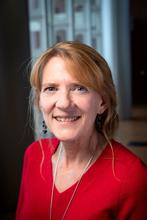
Melissa Ainsworth received her PhD in Special Education from Mason in 2014. She had taught K-12 students with severe disabilities in the Fairfax County Public School (FCPS) system for many years before she began her doctoral studies, and she continued to do so while both working on her doctorate and teaching part-time at the university level. She began her full-time faculty appointment in 2019 as an Instructional Assistant Professor in the field of Special Education in the College of Education and Human Development (CEHD).
Ainsworth’s social impact is evidenced through her deep commitment to her students, who are themselves teachers in the field of special education, and her tireless efforts to support their developing expertise and wellbeing. Ainsworth has been active in presenting her scholarship on students with severe disabilities at local and national conferences and has led numerous professional development workshops for special education teachers in the D.C. metropolitan area. Moreover, she has gone to extraordinary lengths to provide guidance and support for teachers of students with severe disabilities. Motivated by her own research findings that such teachers often feel isolated within their schools and experience high levels of burnout and turnover, she has created a “community of practice” group, REFLECT GMU, for Mason alums who teach students with severe disabilities. She meets with the group on Saturday mornings to discuss relevant research and best practices, and to simply encourage one another. She has also formed an online community, KEEP GMU, centered on a Blackboard site that serves as a discussion group and resource repository for program alumni who work with students with severe disabilities. By all accounts, Dr. Ainsworth’s initiatives and boundless energy offer invaluable support and professional development to this community of educators.
Eunmee Lee
Instructional Associate Professor, Mason Korea
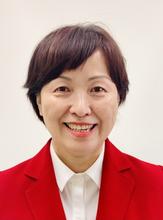
Eunmee Lee joined Mason as a full-time faculty member for Mason’s INTO program in 2015. In 2016 she joined the faculty at Mason Korea in Incheon, where she is currently an instructional associate professor and teaches English for Academic Purposes. Lee is also the founder and director of Mason Korea’s Academic Resource Center.
Lee has led two major initiatives that have had a substantial impact upon the Incheon community and its relationship with Mason and other universities located at Incheon Global Campus. The first is Korea’s Citizen Life College, a lifelong learning program that offers Incheon citizens free, non-credit, lifelong learning courses taught mostly by Mason Korea faculty. The program is designed to reach the people of “Old Incheon,” a mainly working-class community that is very different from the highly cosmopolitan Incheon Free Economic Zone where the Mason Korea campus is located. The program provides access to a Mason education to people who could not otherwise afford it. Participants in the program have reported a strong appreciation for the courses and the program has resulted in local goodwill towards the city’s support for Mason Korea and the Incheon Global Campus project.
Lee has also led a project to support Incheon’s K-12 school system by creating programs for Mason Korea students and faculty to teach and mentor local middle and high school students. She has created the contacts that enable these programs and often teaches in them herself, devoting weekends to them. She has also organized in-service training programs for K-12 schools and teachers in the city, thus offering valuable professional development to Korean educators and further building bridges between Mason Korea and the surrounding community.
Earle C. Williams Presidential Medal for Faculty Excellence in Social Impact
Shane V. Caswell
Professor, Kinesiology
Founding Director, Sports Medicine Assessment Research and Testing Laboratory
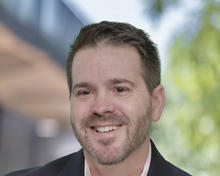
Shane Caswell is Professor of Athletic Training in the School of Kinesiology in the College of Education and Human Development (CEHD) and the Founding Director of the Sports Medicine Assessment Research and Testing (SMART) laboratory. Caswell’s translational research focuses on the practical implementation of research around critical healthcare and safety initiatives, particularly around brain health and concussion management. Since joining the Mason faculty, he has worked concertedly to use his research findings to improve the health of student athletes in the Commonwealth of Virginia.
Over a decade ago Caswell created the ACHIEVES Project, which stands for AdvanCing Healthcare Initiatives for undErserVEd Students, which was initially funded by the Potomac Health Foundation for $1,700,000. The goal of the project is to improve concussion education, diagnosis and management within Prince William County Public Schools. The project has added new dimensions over the years, including measures to improve Hispanic families’ access to concussion education, in addition to increasing the number of athletic trainers in middle schools and preparing them to diagnose and treat concussions on-site. This program has reached over 300,000 students, parents, and school staff since its inception.
The success of the ACHIEVES Project led to the establishment of the Virginia Concussion Initiative (VCI), which was supported by a 5-year, $1.7 million grant from the Centers for Disease Control (CDC). Under Caswell’s guidance, the VCI has brought together a collaborative group of healthcare providers, school personnel, and researchers to develop electronic resources relating to concussions for schools and parents, create tools to improve case management, and devise mentoring arrangements to meet the varied needs of school communities. One of its many achievements has been the Neurodiversity (ND) Toolkit, which provides guidance about how to address the unique needs of neurodiverse individuals during concussion care and has been adopted by the CDC as the first toolkit nationally and internationally to address the needs of this specific population. Another impactful initiative is the VCI’s Extension for Community Healthcare Outcomes (ECHO) Program, which provides a tele-mentoring system to meet the needs of school communities throughout the Commonwealth. Caswell’s sustained efforts over many years have reduced risk and supported the recognition, response, recovery, and return for young people with concussions.
